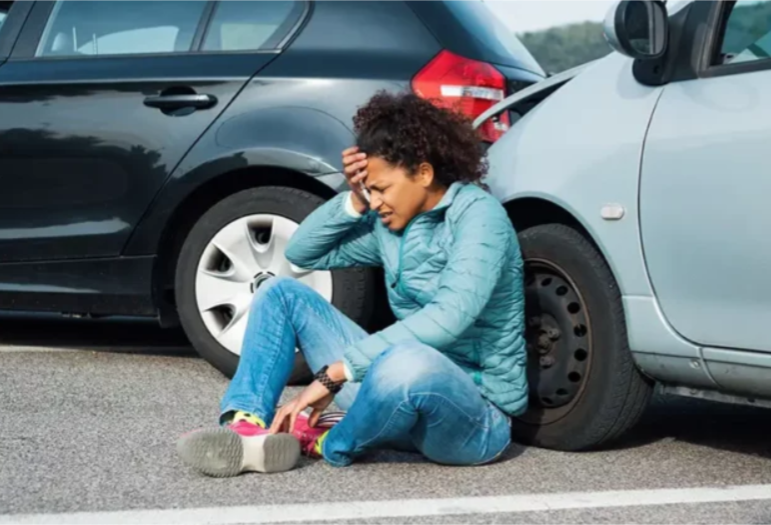(ThyBlackMan.com) Personal injury cases can have devastating consequences, from financial hardship to long-term physical and emotional suffering. Whether it’s a car accident, workplace injury, or medical malpractice, victims often face an uphill battle in securing fair compensation. Unfortunately, Black Americans frequently encounter additional barriers when seeking justice, including systemic inequalities within the legal and healthcare systems.
Historically, marginalized communities have struggled with inadequate legal representation and a lack of trust in the justice system. Many Black injury victims either do not pursue claims or accept unfair settlements due to limited resources and knowledge. Addressing these disparities is crucial to ensuring fair treatment and financial recovery for those affected. By highlighting these issues and working toward solutions, we can help level the playing field for Black individuals seeking justice in personal injury cases.
Medical Bias and Personal Injury Claims
One of the most overlooked challenges in personal injury cases is the role of medical bias. Studies have shown that Black patients are less likely to receive adequate pain management or thorough medical evaluations compared to their white counterparts. This discrepancy affects the documentation of injuries, which plays a critical role in legal claims and insurance settlements.
According to Maier Gutierrez & Associates, when medical providers underestimate or dismiss an injury, it weakens a victim’s case. Insurers often use these incomplete medical records to justify lower compensation or outright deny claims. To combat this, injury victims must seek second opinions, maintain thorough medical documentation, and work with attorneys who understand these biases and can challenge unfair assessments.
Additionally, medical institutions need to acknowledge and address these biases through better training and accountability measures. Advocacy groups can push for policy changes that ensure equitable healthcare treatment, which directly impacts the validity of personal injury claims. Strengthening these efforts will create a more just system where Black injury victims receive fair medical evaluations that support their legal cases.

Systemic Barriers to Legal Representation
Access to quality legal representation is another significant challenge. High legal fees and predatory practices deter many Black personal injury victims from seeking the justice they deserve. Without experienced attorneys, victims may struggle to navigate complex legal proceedings, ultimately settling for less than they are entitled to.
Legal literacy is essential in overcoming these barriers. More community initiatives are needed to educate individuals on their rights, legal options, and how to select reputable attorneys. Free or low-cost legal services offered by nonprofit organizations and advocacy groups can help level the playing field, ensuring that personal injury victims receive fair representation.
Furthermore, law firms and bar associations should make a concerted effort to improve diversity within the legal profession. A legal system that reflects the communities it serves is more likely to provide equitable representation and advocacy. By encouraging Black attorneys to specialize in personal injury law and providing mentorship programs, the legal industry can help bridge the gap in representation and ensure fair outcomes for all clients.
The Insurance Industry’s Unequal Treatment
Insurance companies often engage in discriminatory practices when evaluating personal injury claims. Research indicates that claims from Black individuals are more likely to be undervalued or denied compared to similar cases from white claimants. This systemic bias can significantly impact financial recovery, leaving victims struggling with medical bills and lost income.
To counteract these disparities, claimants must be proactive. Keeping detailed records, challenging lowball offers, and consulting legal professionals can improve the chances of a fair settlement. Additionally, public awareness campaigns and policy changes are necessary to hold insurance companies accountable for discriminatory practices.
One effective strategy is for injury victims to seek independent insurance adjusters or legal experts to assess the true value of their claims. By gathering strong evidence and expert opinions, claimants can present a more compelling case when negotiating with insurers. The more people become aware of these biases and push back against unfair treatment, the more pressure will be placed on insurance companies to reform their practices and operate with greater transparency.
Community Empowerment and Advocacy for Injury Victims
Community support plays a crucial role in helping personal injury victims navigate the legal system. Black-led legal advocacy groups, grassroots organizations, and social justice initiatives have emerged to provide assistance, ensuring that victims are not left to fight alone. These groups offer resources, workshops, and legal referrals tailored to the unique challenges faced by Black communities.
Beyond legal support, mental health and financial assistance programs are vital. Coping with a personal injury extends beyond the courtroom—victims often need emotional and economic support to recover fully. Encouraging conversations around these issues and fostering a culture of advocacy can empower individuals to demand fair treatment and just compensation.
In addition to advocacy, financial literacy programs should be introduced to help injury victims manage settlement funds wisely. Often, individuals receive a lump sum payout without guidance on budgeting, investing, or long-term financial planning. By equipping victims with financial knowledge, communities can help them make informed decisions that secure their future after a personal injury case.
Conclusion: Taking Control of Personal Injury Justice
The challenges Black personal injury victims face are deeply rooted in systemic inequities, but they are not insurmountable. By recognizing these barriers and taking proactive steps—such as securing proper medical documentation, seeking knowledgeable legal representation, and leveraging community support—victims can increase their chances of fair compensation.
Awareness, advocacy, and persistence are key to ensuring justice. As legal and social systems continue to evolve, it is essential to push for fair treatment and equitable access to legal resources. No one should be denied justice because of systemic bias, and every personal injury victim deserves the opportunity to rebuild their life without financial burden or legal obstruction.
By fostering a culture of legal empowerment and demanding accountability from institutions, we can drive meaningful change. The fight for personal injury justice is not just about compensation—it is about ensuring that every individual, regardless of race or socioeconomic status, has the right to be heard, supported, and treated with dignity.
Staff Writer; Larry Porter

















Leave a Reply